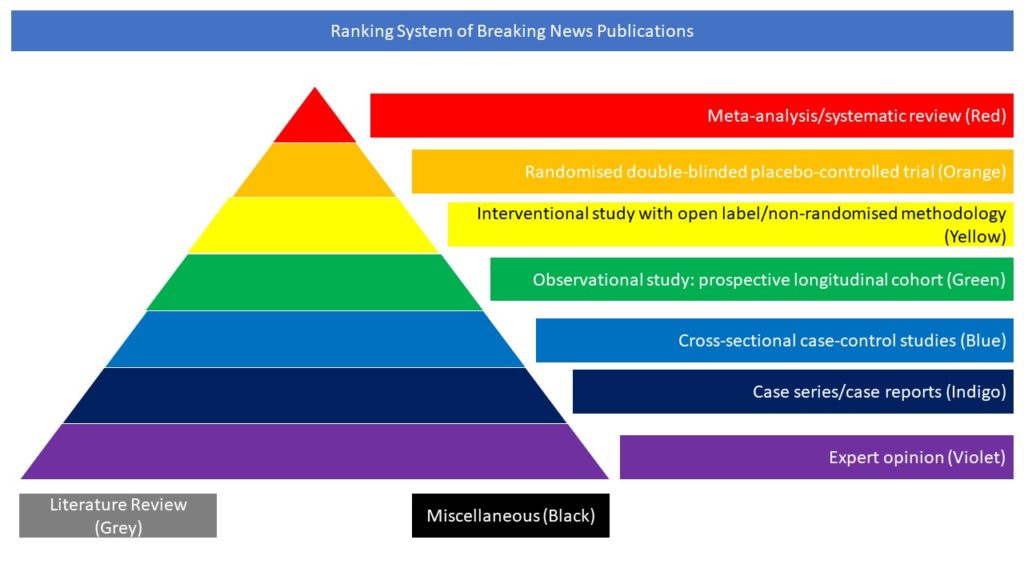Observational study: prospective longitudinal cohort (Green)
In this article the authors examined vaccine effectiveness among health care workers at the Hadassah Hebrew University Medical Center (HHUMC), a two-campus medical center in Jerusalem that employs 6680 people. To create a safe hospital environment, HHUMC established a proactive, periodic screening program for SARS-CoV-2 for all personnel. From the beginning of the epidemic through January 31, 2021, of the 6680 health care workers, 689 (10.3%) were infected, mostly due to exposure to COVID-19 in the community. Vaccination with two doses of the Pfizer–BioNtech vaccine, given 21 days apart, began on December 20, 2020. Within 8 weeks, 5297 of 6252 (84.7%) health care workers who had not been previously infected by December 20 were vaccinated. Most of the health care workers (98.9%) who had received the first dose of vaccine and were not infected by day 21 received the second dose. The authors collected data regarding the vaccine status of health care workers and the infections that occurred among them. Among the vaccinated workers, the weekly incidence of COVID-19 since the first dose declined notably after the second week; the incidence of infection continued to decrease dramatically and then remained low after the fourth week. The authors concluded that in their study, vaccination of health care workers with the BNT162b2 vaccine resulted in a major reduction of new cases of COVID-19 among those who received two doses of the vaccine, even when a surge of the B.1.1.7 variant was noted in up to 80% of cases.
Benenson S, Oster Y, Cohen MJ, Nir-Paz R. BNT162b2 mRNA COVID-19 Vaccine Effectiveness among Health Care Workers. N Engl J Med. 2021 Mar 23:NEJMc2101951. doi: 10.1056/NEJMc2101951.











